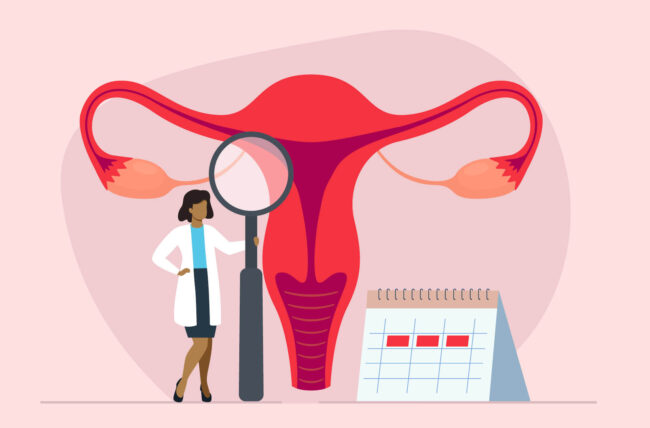10 REASONS WHY YOUR PERIOD MAY BE LATE
The menstrual cycle is a complex process regulated by a delicate interplay of hormones and physiological factors. Occasional irregularities in the menstrual cycle are relatively common and often not a cause for concern. However, persistent or significant changes in menstruation can be distressing and may indicate underlying health issues. This report aims to provide an in-depth understanding of the various reasons behind delayed menstruation, exploring both common and less-known factors.


1) Pregancy
One of the primary causes of delayed menstruation is pregnancy. When conception occurs, the fertilized egg implants itself in the uterus, leading to a halt in menstruation. A pregnancy test can confirm or rule out this cause.

2) Stress
Stress, whether due to emotional or physical factors, can have a significant impact on the menstrual cycle. High levels of stress trigger the release of cortisol, a stress hormone, which can disrupt the normal functioning of the hypothalamus. This disruption affects the production of reproductive hormones, leading to delayed or irregular periods.

3) Hormonal Imbalance
Hormonal imbalances can arise from various factors, including medical conditions or lifestyle choices. Conditions such as polycystic ovary syndrome (PCOS), characterized by an excess of androgens, can lead to irregular or absent menstrual cycles. Thyroid disorders, such as hypothyroidism or hyperthyroidism, can also disrupt the delicate hormonal balance necessary for regular menstruation.

4) Medical Condition or Medication
Certain medications, such as hormonal contraceptives (birth control pills, patches, or intrauterine devices), can alter the menstrual cycle. Other medications, including antidepressants or corticosteroids, may also affect hormonal regulation. Underlying medical conditions like pelvic inflammatory disease, endometriosis, or uterine fibroids can contribute to menstrual irregularities.

5) Weight Change
Significant changes in body weight, either weight loss or weight gain, can impact hormonal balance and subsequently delay menstruation. Extreme exercise routines or restrictive eating patterns can also cause disruptions in the menstrual cycle due to inadequate energy availability.

6) Perimenopause
As women approach menopause, typically in their late 40s or early 50s, the menstrual cycle undergoes a transitional phase called perimenopause. During this time, hormone levels fluctuate, causing irregular periods and delayed menstruation.

7) Travel
Frequent travel can impact the body’s circadian rhythm, which regulates various physiological processes, including the menstrual cycle. This disruption often occurs due to changes in light exposure, meal times, and sleep patterns when crossing time zones. Consequently, women who travel frequently may experience irregular periods or changes in their menstrual cycle duration until their body readjusts to a stable routine.

9) Illness
Certain illnesses or infections can indeed have profound effects on the reproductive system, leading to menstrual irregularities. Conditions such as polycystic ovary syndrome (PCOS), thyroid disorders, or sexually transmitted infections can disrupt the delicate hormonal balance required for regular menstruation. Additionally, even common illnesses like the flu can temporarily impact the menstrual cycle, as the body’s response to infection can release stress hormones like cortisol, affecting the usual hormonal rhythms. It’s essential for individuals experiencing such disruptions to seek medical advice to diagnose and manage these underlying health issues, as they can have broader implications for overall well-being and fertility.

10) Lifestyle Factors
Excessive alcohol consumption, smoking, and drug use can indeed have detrimental effects on hormonal balance, which in turn can contribute to delayed menstruation. Alcohol, for instance, can interfere with the liver’s ability to metabolize hormones effectively, while smoking can introduce harmful chemicals that affect the reproductive system. Moreover, certain drugs can directly influence the menstrual cycle by either suppressing or overstimulating hormone production, making it crucial for individuals to be aware of how their lifestyle choices can impact their menstrual health.

Delayed menstruation can result from a wide range of factors, including pregnancy, stress, hormonal imbalances, weight changes, medications, medical conditions, perimenopause, and various lifestyle factors. While occasional irregularities in the menstrual cycle are normal, persistent or significant changes should be evaluated by a healthcare professional. Seeking medical advice and appropriate diagnosis is crucial to identify the underlying cause and ensure optimal reproductive health.
